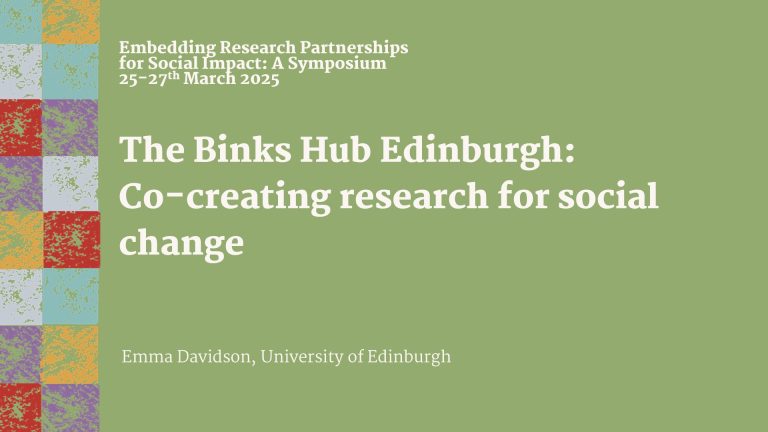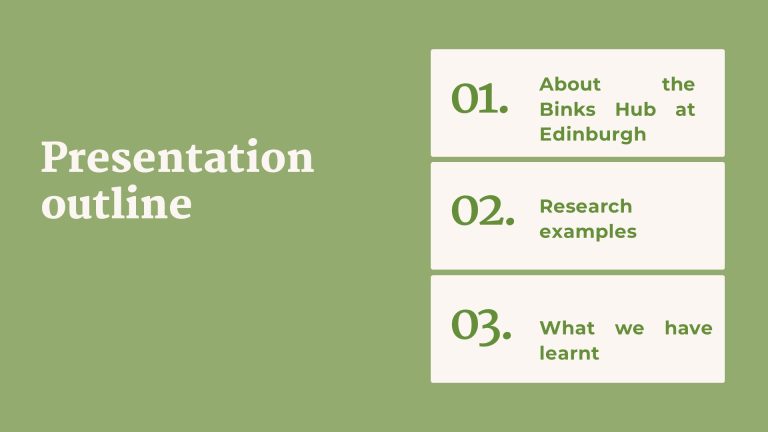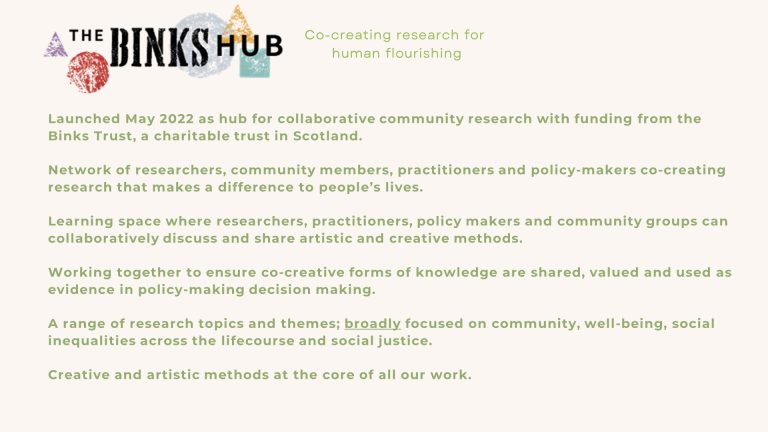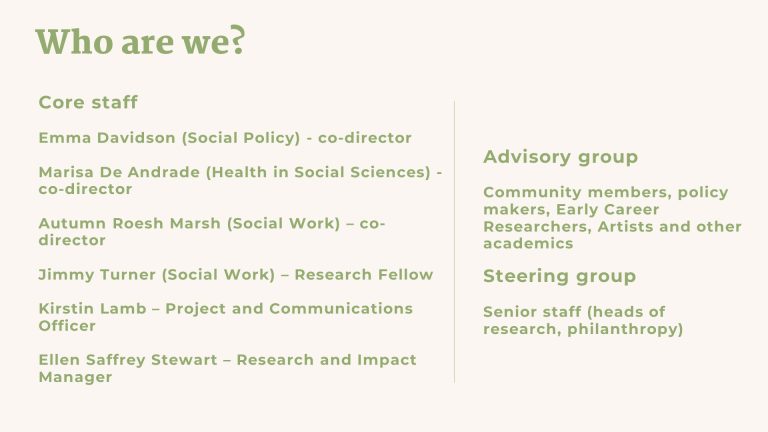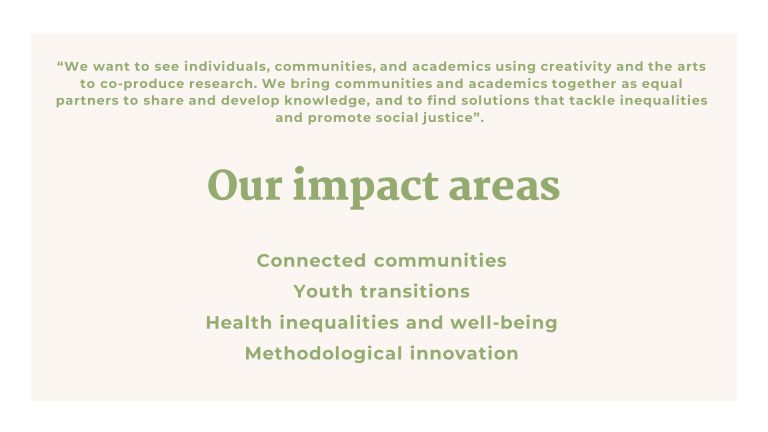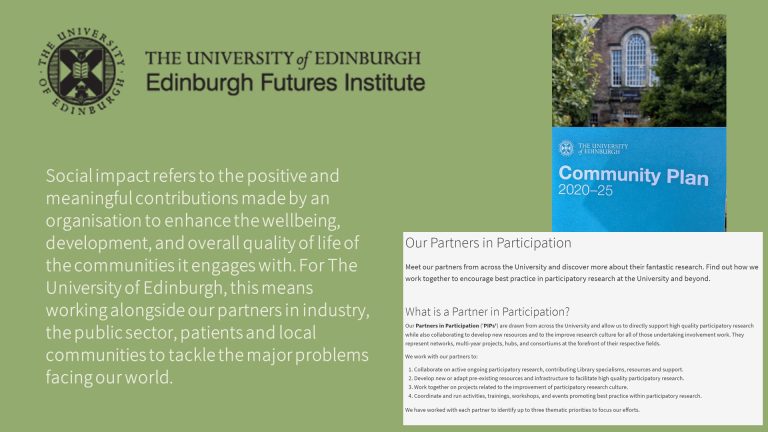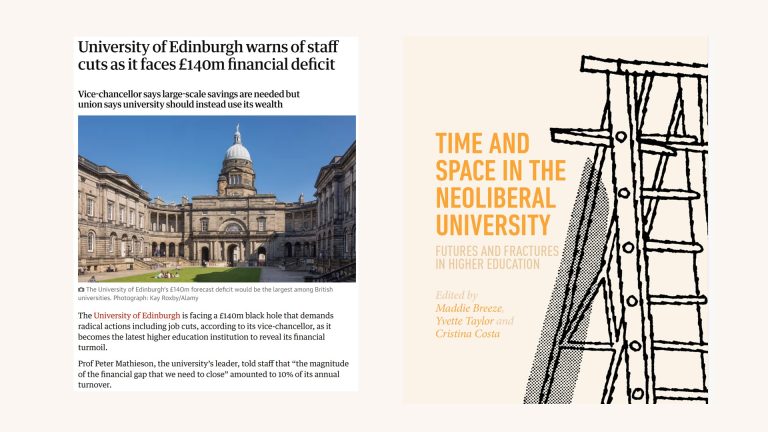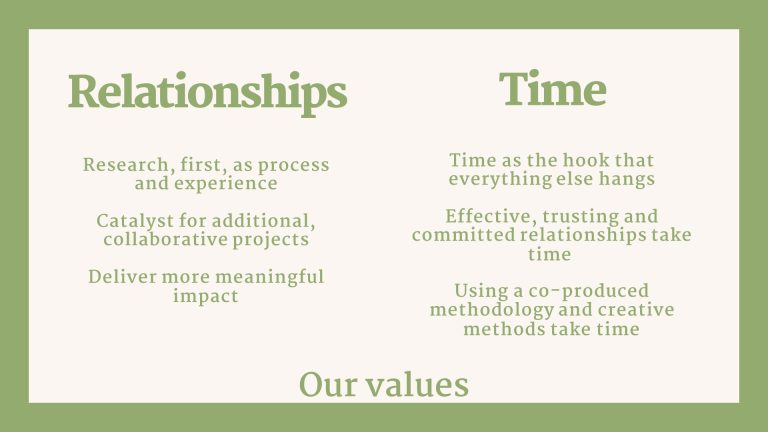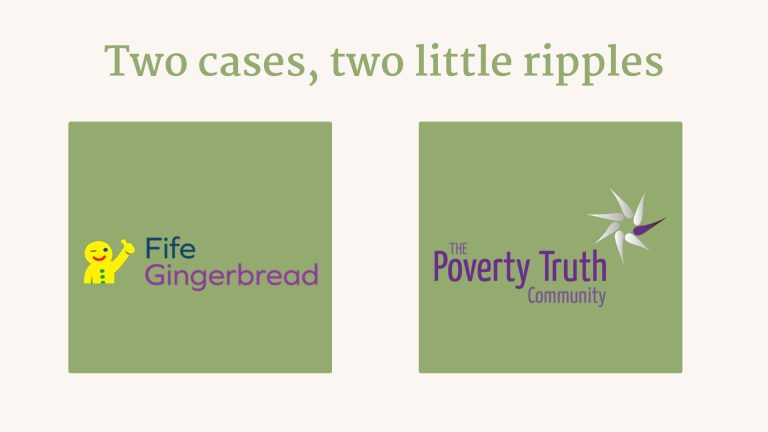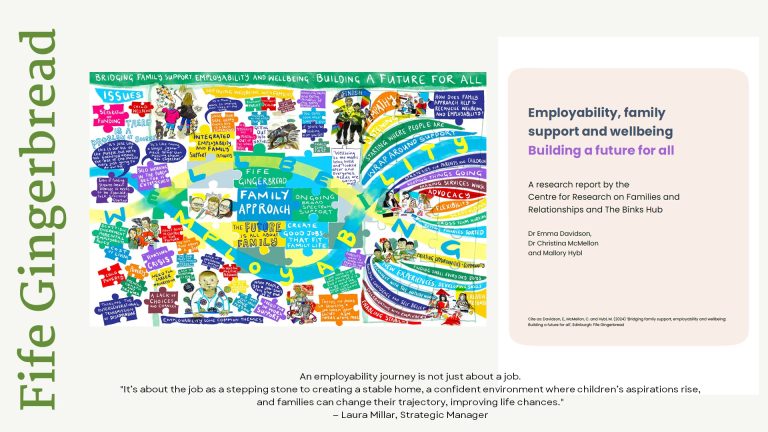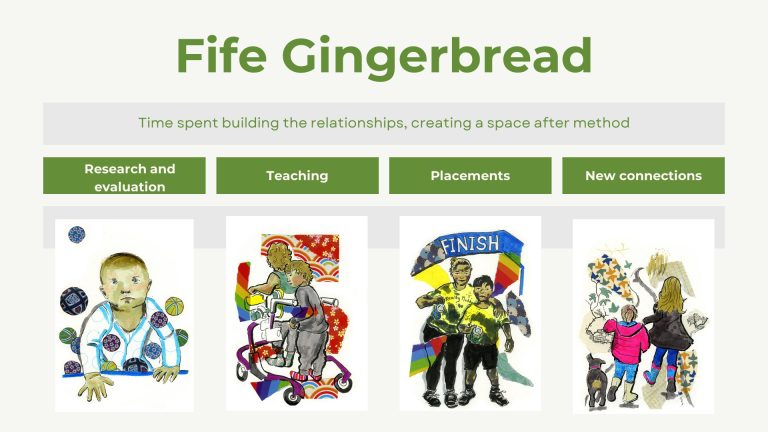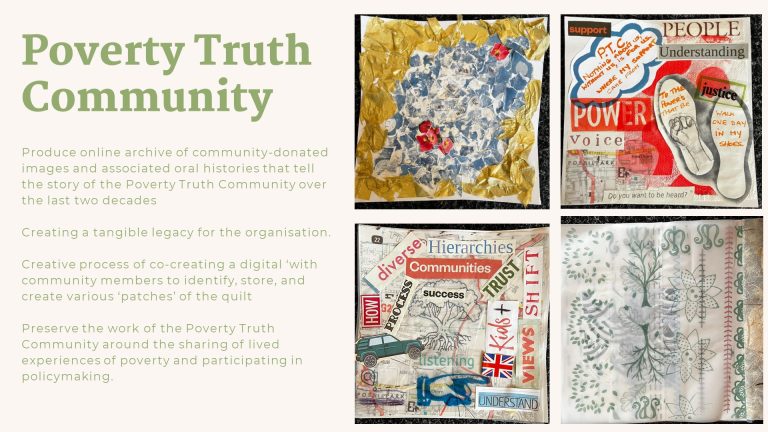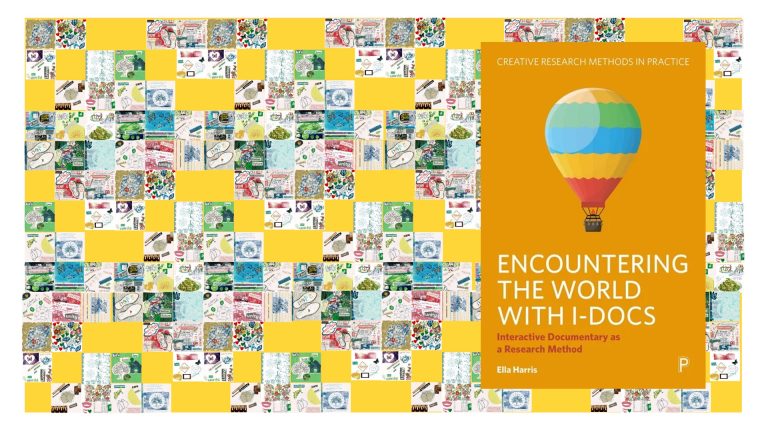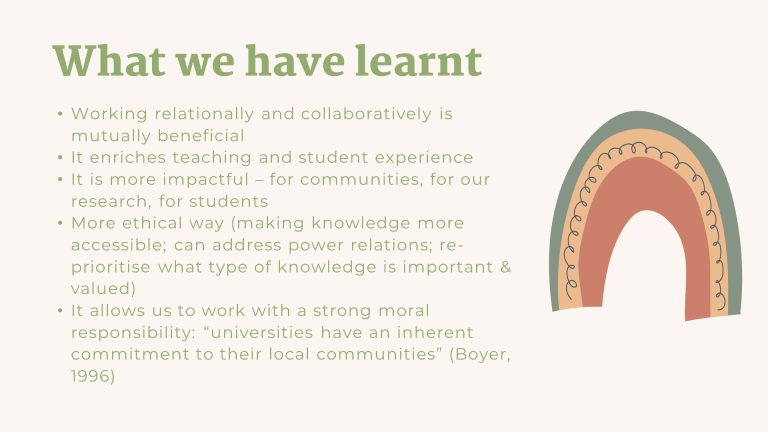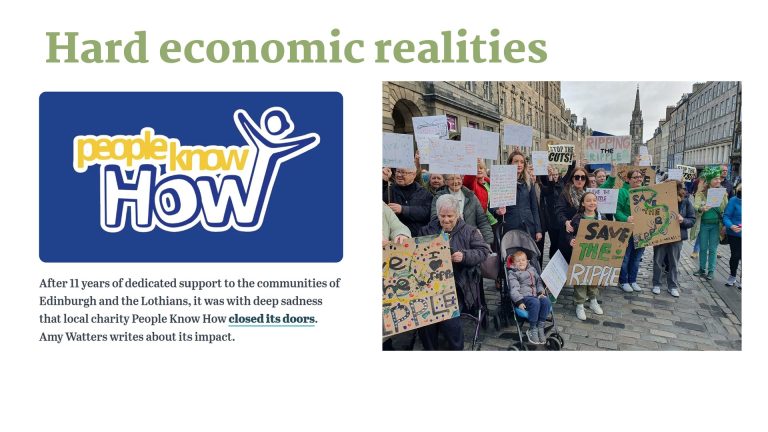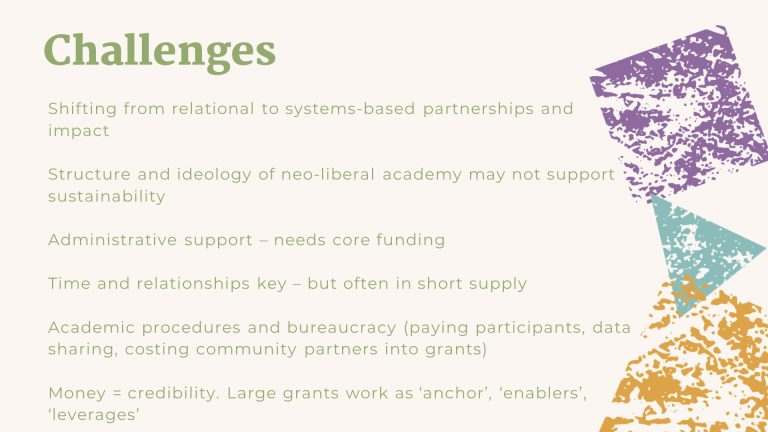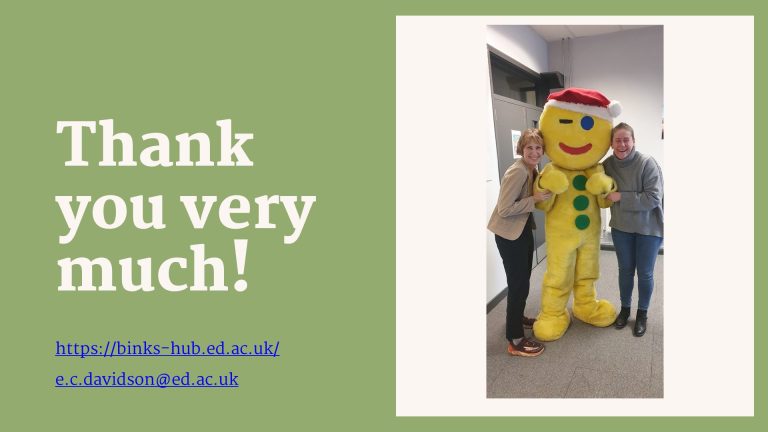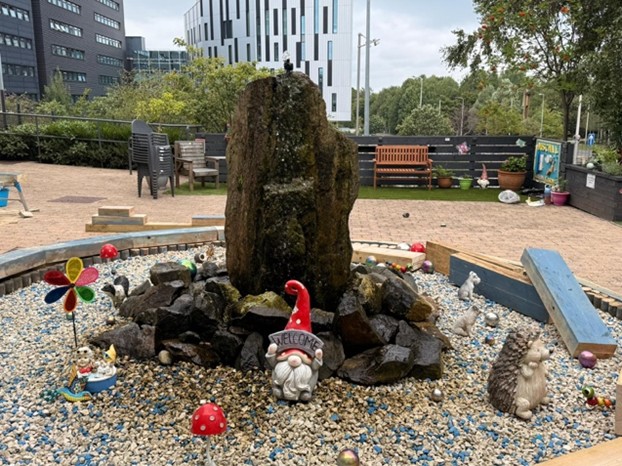A blog from our Co-Director Emma Davidson.
Earlier this year, I had the pleasure of visiting the University of Queensland as part of their symposium exploring the challenges and opportunities for embedding industry and community partnerships for social policy impact. I was there to share a little about the journey of the Binks Hub and our commitment to its ethos of collaborative community research; using creative and arts-informed methods, our aim is to co-create trusting, long-term relationship with community partners.
The Binks Hub grew out of a strong feeling that something was missing. Although there was fantastic arts-based, creative, and participatory work happening across the University of Edinburgh, it often lived within individual projects or people. There wasn’t an institutional ‘home’ to connect it to other work, or sustain the relationships formed. We wanted to create a space where people working in these ways could come together, share good practice, and build something bigger than any one project.
There was also a deeper motivation. Even as creative and participatory methods have become more visible, we noticed that certain kinds of knowledge, often those tied to ‘big data’ and statistical outputs, continued to be privileged. The Binks Hub was our way of challenging those hierarchies, and showing that relational, creative, and participatory work deserves as much attention, respect, and support.

At the core of what we do is relational practice: the belief that meaningful research is built on trust, collaboration, and shared understanding. It’s about valuing the relationships we build with community partners, not treating them as a means to an end. One such relationship is Fife Gingerbread, a voluntary sector grassroots organisation that provides support to lone parents and families in Fife. We began by completing a small creative evaluation project for the organisation in 2023. Rather than report the findings and move on, we have actively looked for ways to continue our collaboration. As well as another project (this time on the relationship between employability, family support, and children’s well-being), Fife Gingerbread have become actively involved in undergraduate teaching in Social Policy; an undergraduate student has just completed their dissertation using Fife Gingerbread as a case study; and a new post-graduate student will begin this month. Our new research initiative is to work alongside parents to support them to complete their own research into support for children with additional support needs.
Universities should be building more research partnerships like this since they bring value to academics, teaching and community partners. Actively and meaningfully working alongside community partners to support social change. Yet being at the symposium in Queensland brought home an important question for me: How do we combine relational work with systemic change?

As the Fife Gingerbread example shows, and from our wider experience at the Hub, we know that relational practices are vital. But relationships depend on people, and people move on. They change jobs, take up new opportunities, and life shifts around them. When that happens, good practices and hard-earned trust can sometimes be lost, especially in large institutions.
So, the challenge for us, and I think for many others, is not just to build strong relationships, but to embed relational approaches into the wider systems we work within. To make them part of the architecture, not just the atmosphere.
At the Binks Hub, we’re starting to explore how we can do that. Some of the ways include:
- Embedding teaching on arts-based and participatory practices into the curriculum, so that future researchers carry these values forward.
- Rethinking how we do placement-based dissertations, building stronger bridges between students and community partners.
- Partnering with the University Library, whose commitment to community participation is enabling us to share good practice, co-create outputs, and access neutral space for community collaboration.
- Demonstrating new models of working that are not tied to individual projects, but support longer-term relationships which mobilise funding for community partners and support community assets to flourish. See, for example, the ongoing REALITIES project.
None of this is easy and we are still working our way through institutional barriers. Systemic change takes time. But it’s a goal we are committed to because we believe that if we want community-university partnerships to thrive, we need to move beyond the current model, and build something more lasting.
I came away from Queensland feeling energised, reminded that these questions aren’t ours alone, and that many people around the world are working hard to rethink how we do research in ways that are more relational, more just, and more sustainable.
Here’s to continuing those conversations – and to building systems that are as caring as the relationships they are meant to support.
